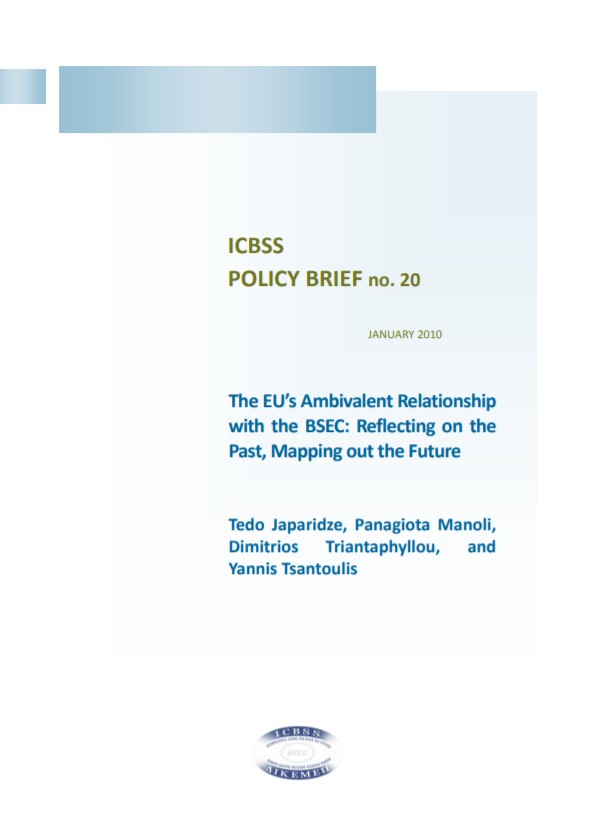 Title: The EU’s Ambivalent Relationship with the BSEC: Reflecting on the Past, Mapping out the Future
Title: The EU’s Ambivalent Relationship with the BSEC: Reflecting on the Past, Mapping out the FutureSeries: Policy Brief
Published by: ICBSS
Release Date: January 2010
Pages: 38
Authors: Tedo Japaridze, Panagiota Manoli, Dimitrios Triantaphyllou, and Yannis Tsantoulis
The relationship between the Organization of the Black Sea Economic Cooperation (BSEC) and the European Union (EU) has been characterised by many as limited and rather ambivalent. Since 2008, with the launching of the Black Sea Synergy (BSS), it seems to have gained a new momentum. However, many issues remain open as the almost parallel initiation of the Eastern Partnership (EaP) that overlooks and bypasses the BSEC’s (potential) role, appears to have posed somehow a significant challenge to the existing regional equations, thus questioning the future development of the interaction between the BSEC and the EU. Overall, although the emergence of both the BSS and the EAP is a positive development in many regards there are still some open issues and a clear scepticism in regard to both initiatives. To assess this rather complicated situation and to clarify some of the pending issues, this paper undertakes a “reality check” by analysing the key features of both the BSS and the EaP while reflecting on the probability of a future upgraded relationship between the BSEC and the EU especially with the implementation of the Lisbon Treaty. In this regard, the purpose of this paper is to reflect on the relatively recent past of this relationship, assess the current situation and table some proposals for the evolution of the relationship, thus considering the impact of these two policy approaches (BSS and EaP) and the BSEC’s potential role for the region as a whole and beyond it.
The edition is available here.
